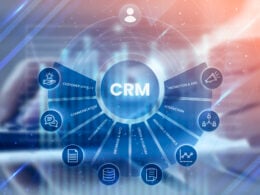How to choose the accounting software that’s right for you
Selecting the most suitable software for your business can be very tricky. As with anything, there are pros and cons for each piece of software available. The question you need to ask yourself is, “How will I use the software?” It’s very important to identify your needs before you start looking at accounting software as this will help you select the best software for your needs.
Desktop Software
Sage: This is one of the oldest accounting softwares on the market. This means that it has been tried and tested for all manners of varied uses, as a result, it is much more reliable than other options on the market. Compared to other products out there, sage can be very pricey, but on the other hand, it works very well and has lots of unique benefits. As an example, it has a very easy system for tracing errors, which is a big benefit.
VT Transactions: This is a simple desktop software, which I would recommend to a small business just starting up. The software is really easy to use with very reasonable costs which is what makes it so good for start-ups. It comes with all the big features you’d expect from high-end desktop accounting software (e.g. features such as being able to import and export lists of transactions to excel) but for a much smaller price.
Excel: This is a really handy program to help keep your accounting records in order. If you are only just starting up and don’t wish to incur any software expenses, Excel is by far the best option. Excel is a very flexible program and with a bit of training on various shortcuts and equations you will be able to use Excel for all sorts of complicated applications, from invoicing to producing financial statements.
Advantages of using desktop accounting:
- You can set the software to backup data daily, weekly, or monthly onto external storage devices. If any issues occur with the software, nothing will be lost
- You don’t need internet connection to use the software
- It works out cheaper than cloud software in the long run, as you just pay a one off fee.
Disadvantages of using desktop:
- With some software you may be required to pay extra for support
- If you forget to do backups and files become corrupted, you could easily lose large amounts of data
- In comparison to cloud accounting software, there is no quick and easy way to share data with others (such as your accountant). You’ll have to make backups of data, put them into the correct format and send them as an attachment via email.
Cloud Accounting
Cloud accounting is growing in popularity due to the unique unique features it offers, which simply aren’t possible on desktop softwares. Cloud is much more suitable for ‘the modern business’ than desktop software due to its simple functionality and on-the-go mobile accessibility. There are several good cloud accounting softwares available. The ones we have had experience on (Xero, Kashflow and Clear Books) all work very similarly. Though they do have some different features. One feature I like from Xero is the idea of being able to attach a document while raising invoices. I find this very useful, especially for consultants who have to send either timesheets or expenses records while issuing an invoice. Each software is equally good for slightly different applications. In order to choose which to use, as mentioned earlier, identify exactly what you are going to use the software for and select the most suitable.
Advantages of cloud accounting:
- You can easily access your data anywhere at any time, with specifically designed apps on your mobile or tablet
- The facility to bank feed – this is where you link the cloud software with your online banking, enabling you to easily export bank transactions
- You can easily share information with your accountant meaning you both have access to the same data, making your accounting more time efficient
- Information is always backed up, saving you the headache of having to back up files every day or week
- Support is included within your monthly fee.
Disadvantages of cloud accounting:
- You won’t be able to access your accounts if you haven’t got an internet connection
- The software could work out expensive in the long run due to paying on a monthly basis as opposed to a single one off payment with desktop software
- One of the biggest problems we face is that clients can easily amend/delete transactions, potentially creating more work if they cannot be traced. The software does have a facility to lock up data, but unlocking it is easy
- Finally, of course there is always the fear that your data is more vulnerable to theft through hacking. This is a possibility, but only a small one!
For more information on the various cloud accounting packages, visit our site.






